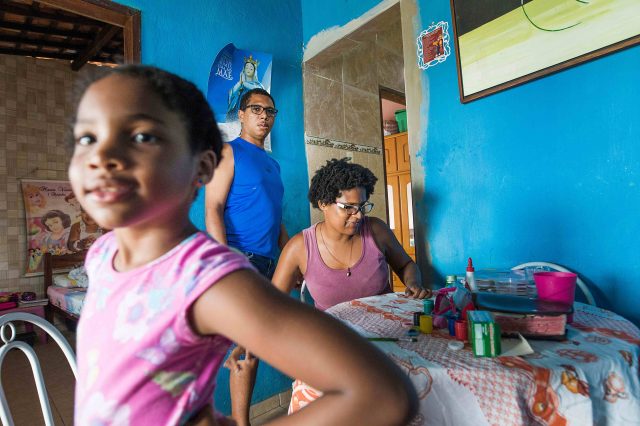UN Special Rapporteur dialogues with NHR Brazil about projects and best practices
On the 8th of May 2019, NHR Brazil participated in a meeting with the UN Special Rapporteur on the Rights of Persons Affected by Leprosy and their Family Members, Ms. Alice Cruz.

Ms. Cruz (on the right) conducted her official visit to Brazil from 7 to 14 May, meeting with authorities, organisations, social movements and persons affected by leprosy, as well as visiting communities and discussing the challenges faced by those who deal with the disease in the country.
Different aspects of structural and interpersonal discrimination, strategies to reduce stigma and inclusive development were discussed during her visit. She also collected information about good practices with a holistic view on persons affected.
In Rio de Janeiro, NHR Brazil was represented by technical advisor Ms. Rejane Almeida (in the middle) and principal investigator from PEP++ in Brazil, Ms. Ximena Illarramendi (on the left). After the meeting, the organisation provided more information on projects and results of recent years.
Sharing views and experiences
NHR Brazil invited two beneficiaries to share their views on the projects that have been supported over the years: Ms. Albanete Mendonça, coordinator of the project Agevisa (Social and Economic Rehabilitation) in Rondônia, and Ms. Marizete Alves, a person affected by leprosy who benefited from the gastronomy and handicraft workshops in the same state, attaining a better quality of life after selling her products and combating discrimination in her community.
The meeting included other organizations, such as Brasil Health and Action (Brasil Saúde e Ação – Brasa), the Movement for Reintegration of Persons Affected by Leprosy (Movimento de Reintegração de Pessoas Atingidas pela Hanseníase – Morhan), and representatives from former colonies from Minas Gerais and from the ILEP Panel of Women and Men Affected by Leprosy.
Issues that were addressed in the meeting included capacity building for health professionals after graduation, compensation for children separated from their parents due to seclusion measures in the past and the need to include mental health and sexuality issues in the national guidelines for self-care. Some of these issues will be included as best practices in Ms. Cruz official report.
The cases that I have personally witnessed of children affected by Hansen’s disease* and diagnosed with already physical impairments, are the most evident examples of the need for a human rights approach to Hansen’s disease.
UN report
Based on her findings, Ms. Cruz will publish a report to be presented to the UN Human Rights Council in June of 2020.
More information about the personal visit of Ms. Cruz to Brasil can be obtained on the website of the United Nations

Hansen's disease
The leprosy bacteria was discovered in 1873 by the Norwegian doctor Armauer Hansen. Many people prefer to use the term ‘Hansen’s disease’ because throughout the ages leprosy has been surrounded with fear and stigma. Because of this it is forbidden to use the word ‘leprosy’ in Brazil and they use the term ‘Hansen’s disease’ to refer to the disease.